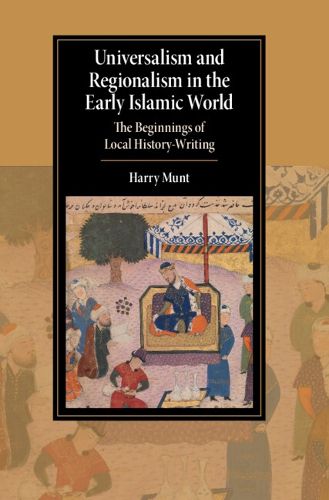Readings Newsletter
Become a Readings Member to make your shopping experience even easier.
Sign in or sign up for free!
You’re not far away from qualifying for FREE standard shipping within Australia
You’ve qualified for FREE standard shipping within Australia
The cart is loading…






What was the role of local history-writing in the early Islamic World, and why was it such a popular way of thinking about the past? In this innovative study, Harry Munt explores this understudied phenomenon. Examining primary sources in both Arabic and Persian, Munt argues that local history-writing must be situated within its appropriate historical contexts to explain why it was such a popular way of thinking about the past, more popular than most other contemporary forms of history-writing. The period until the end of the eleventh century CE saw many significant developments in ideas about community, about elite groups and about social authority. This study demonstrates how local history-writing played a key role in these developments, forming part of the way that Muslim scholars negotiated the dialogues between more universalist and more particularist approaches to the understanding of communities. Munt further demonstrates that local historians were participating in debates that ranged into disciplines far beyond history-writing.
$9.00 standard shipping within Australia
FREE standard shipping within Australia for orders over $100.00
Express & International shipping calculated at checkout
Stock availability can be subject to change without notice. We recommend calling the shop or contacting our online team to check availability of low stock items. Please see our Shopping Online page for more details.
What was the role of local history-writing in the early Islamic World, and why was it such a popular way of thinking about the past? In this innovative study, Harry Munt explores this understudied phenomenon. Examining primary sources in both Arabic and Persian, Munt argues that local history-writing must be situated within its appropriate historical contexts to explain why it was such a popular way of thinking about the past, more popular than most other contemporary forms of history-writing. The period until the end of the eleventh century CE saw many significant developments in ideas about community, about elite groups and about social authority. This study demonstrates how local history-writing played a key role in these developments, forming part of the way that Muslim scholars negotiated the dialogues between more universalist and more particularist approaches to the understanding of communities. Munt further demonstrates that local historians were participating in debates that ranged into disciplines far beyond history-writing.